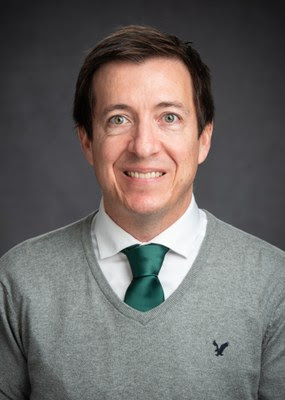
FARGO, N.D. (NDSU Extension) – Rob Proulx has joined the North Dakota State University Agricultural and Biosystems Engineering Department as the Extension agricultural technology systems specialist.
“We are extremely fortunate to be able to bring Dr. Proulx to NDSU,” says Leon Schumacher, Agricultural and Biosystems Engineering department chair. “He’s had such a legacy of training at Crookston. We’re happy he’s made the decision to bring his agriculture technology systems expertise to people in the state.”
In his Extension work, Proulx’s primary focus areas are precision agriculture, sprayer systems and machinery systems.
In addition to providing education in these areas, Proulx hopes to provide two main benefits to producers and to county Extension agents who work directly with producers.
“The first is to help them sort, group and filter the rapidly changing and developing agricultural technologies that are coming to market,” says Proulx. “The second is to help them develop decision-making strategies that consider the ways agricultural production science, logistics and technology overlap. I’m excited to put my knowledge and abilities to work in these areas.”
Since joining NDSU in January, he has been updating some of the Extension sprayer systems materials and having conversations with stakeholders to see if there are knowledge gaps where he can create new educational materials.
“I would also like to build out Extension programming on precision agriculture technologies and how they might fit within farmers’ operations,” says Proulx. “I welcome input from North Dakota farmers on their needs in these areas.”
Proulx earned his Bachelor of Science degree in plant industries management – agronomy from the University of Minnesota Crookston in 2006, his master’s degree in applied plant sciences – agronomy/agroecology from the University of Minnesota Twin Cities in 2008, and his Ph.D. in earth system science and policy from the University of North Dakota in 2019.
His master’s research focused on investigating environmental influences on soybean protein and oil contents. His doctorate research compared the feasibility of corn and wheat plant material versus switchgrass plant material as renewable energy sources.
Professionally, he has served as a lecturer in agronomy at the University of Minnesota Crookston for the past 14 years, where he taught and advised undergraduate students in agronomy and precision agriculture. He also had intermittent stints conducting field research for the University of Minnesota, the Minnesota Canola Council and the Minnesota Wheat Research and Promotion Council.
